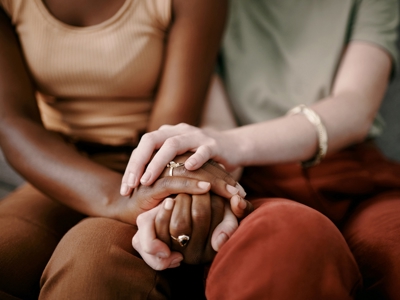
Why policy reform in education is essential to tackling violence against women and girls
Human rights partner Dino Nocivelli and paralegal Astrid Parrett discuss the importance of policy reform for protecting school children from sexual harassment and violence.
Posted on 04 December 2024
Content warning: This blog contains themes of sexual violence.
According to Rape Crisis, one in four women have been raped or sexually assaulted since the age of 16, while five in six women who are raped do not report the abuse they suffered to the police.
Abuse is a widespread and firmly rooted issue in society with there being millions of female and male sexual abuse victims worldwide. There are many reasons why victims do not disclose the abuse they have suffered but some of the most prominent is the issue of victim blaming in that they will be blamed for the abuse and disclosing abuse will lead to humiliation and further distress.
At Leigh Day, we see this in our cases where we represent abuse victims in bringing claims against their abusers or institutions who have failed to protect them. Many of our clients do not bring claims until many years after the abuse took place as they are worried about what others would think.
In light of the 16 days of action against violence against women, it is important to consider how these victim blaming attitudes prevent women from reporting the abuse they suffer and how policy reform in schools is essential to tackle these attitudes.
Victim blaming changes the narrative of the abuse, moving the blame onto the victim rather than the abuser. It includes blaming the woman’s behaviour, appearance, choices or circumstances for facing violence.
We are exposed to victim-blaming attitudes from a young age and it seems that educational institutes further, rather than prevent, these attitudes.
It has been reported that some secondary schools have banned girls from wearing skirts because they were ‘distracting male teachers and students’. As Dr Jessica Taylor writes in her book ‘Why Women are Blamed for Everything- Exposing the Culture of Victim-Blaming’ (2020), it is bizarre that rather than responding to the fact that there may be male teachers who view female children sexually and that there might boys who are sexually harassing girls, schools have banned skirts and labelled female students as being provocative.
In 2021, OFSTED stated that around nine in 10 female students disclosed that they have been called sexist names. It has been reported that sexism and sexual harassment is ‘normalised’ and ‘every day occurrences’ at school.
This may lead to female students blaming themselves for the behaviour they are subjected to and so, they do not report. This is evident in our cases where victims often blame themselves for the abuse they have been subjected to and some victims even stating that at the time of the abuse, they thought that what they were subjected to was normal.
A large proportion of our childhood is spent at school. Education is the cornerstone of individual empowerment and societal change. Education needs to be a tool where we can challenge harmful stereotypes and prevent violence against women.
Governments and schools must tackle sexual harassment and sexual violence as an immediate priority. It is essential that there is a legal obligation on all schools to develop a school-wide strategy to tackling and preventing sexual violence and harassment. There needs to be regular lessons and training, for both students and teachers, which are run by appropriate professionals that aim to prevent violence against women.
Crucially, boys and men should be seen as being part of the solution to the problem of violence against women and girls.
Last year, the now Labour Government vouched to halve violence against women and girls in the next 10 years if they were elected. However, in the recent Chancellor’s Speech (as highlighted by Woman’s Aid), there was a failure to commit new funding to tackling this epidemic despite violence against women increasing.
There must be an immediate investment in programmes that aim to tackle victim blaming attitudes in order to prevent violence against women such as sex education lessons and training at schools, and specialist support to victims and survivors. We cannot allow another generation of women to be subjected to the current risk of abuse and change is long overdue.




